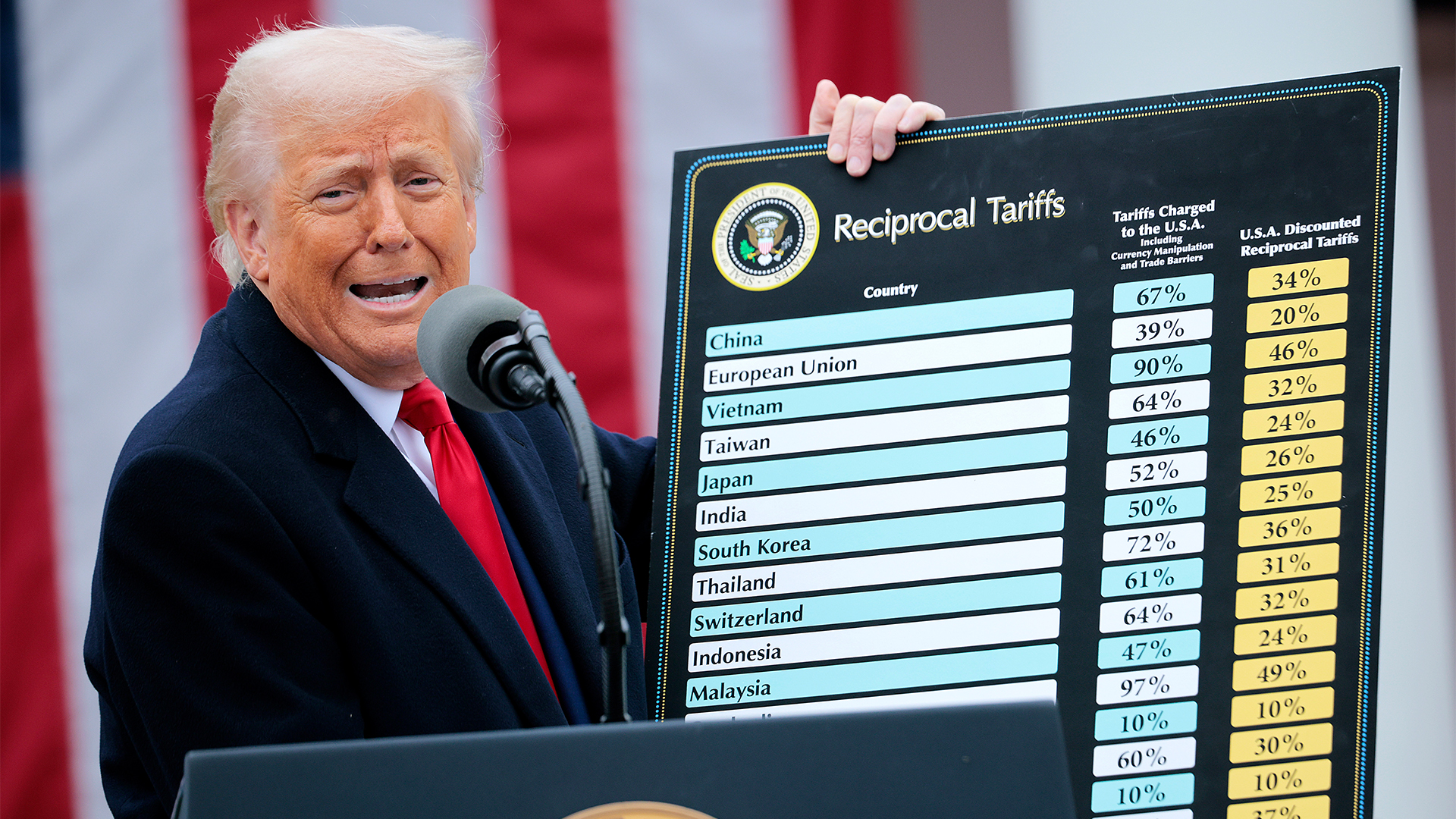Google secretly gamed its own ad system, lawsuit claims
Secretive “Project Bernanke” allegedly gave the search giant an unfair advantage

Google has been using a secret program to track bids on its digital ad-buying platform and it's accused of using that information to give itself an unfair advantage over competitors, according to court documents filed in a Texas antitrust lawsuit.
Texas is one of a dozen states suing Google for antitrust practices in the search and advertising markets, and its lawsuit just inadvertently revealed some alleged behind-the-scenes information.
In the initial version of the filing, which The Wall Street Journal viewed, Google accidentally failed to redact some information, revealing its secretive business practices. A federal judge allowed Google to refile a redacted version later.
In those documents, Google reportedly acknowledged the existence of an initiative called “Project Bernanke,” an apparent reference to former Federal Reserve chairman Ben Bernanke.
Texas alleges this program was the equivalent of insider trading due to Google’s complicated role in the online advertising marketplace.
Texas says Google operates simultaneously as a major ad exchange operator, a representative of buyers and sellers on the exchange, and an ad buyer itself. By being both an owner and a client, Google gamed the system because it had access to exclusive data other ad buyers didn’t, according to the antitrust lawsuit.
Texas alleges that Google used information on what other ad buyers were willing to pay for space to bid just the bare minimum to beat rivals and secure ad placements, the state alleges. It could pay publishers less on its winning bids for ads.
Get the ITPro daily newsletter
Sign up today and you will receive a free copy of our Future Focus 2025 report - the leading guidance on AI, cybersecurity and other IT challenges as per 700+ senior executives
In the court documents that Google filed, the search giant acknowledged “the details of Project Bernanke's operations are not disclosed to publishers.” But it denied that the program gave Google an unfair advantage, calling it “comparable to data maintained by other buying tools.”
Texas is one of a dozen states suing Google, accusing it of antitrust practices in the search and advertising markets. In October 2020, the Department of Justice and 11 states sued Google — California joined the lawsuit later.
The lawsuit says Google used exclusionary agreements to lock up the search engine market by requiring it to be the default search engine for mobile devices and computers.
In October, Google responded to the original lawsuit, calling its antitrust arguments “dubious” and arguing that its agreements are no different from those other companies have used to distribute software. It also said rival search services paid to be featured as prominent options on Apple’s Safari browser.
-
 IDC warns US tariffs will impact tech sector spending
IDC warns US tariffs will impact tech sector spendingNews IDC has warned that the US government's sweeping tariffs could cut global IT spending in half over the next six months.
By Bobby Hellard
-
 US government urged to overhaul outdated technology
US government urged to overhaul outdated technologyNews A review from the US Government Accountability Office (GAO) has found legacy technology and outdated IT systems are negatively impacting efficiency.
By George Fitzmaurice
-
 US proposes new ‘know-your-customer’ restrictions on cloud providers
US proposes new ‘know-your-customer’ restrictions on cloud providersNews The US aims to stifle Chinese AI competition with new restrictions on cloud providers to verify foreign data center users
By Solomon Klappholz
-
 SEC passes rules compelling US public companies to report data breaches within four days
SEC passes rules compelling US public companies to report data breaches within four daysNews Foreign entities trading publicly in the US will also be held to comparative standards
By Rory Bathgate
-
 US says National Cybersecurity Strategy will focus on market resilience and private partnerships
US says National Cybersecurity Strategy will focus on market resilience and private partnershipsNews The recently announced implementation plans alow for more aggressive action against ransomware gangs
By Rory Bathgate
-
 US ‘Tech Hubs’ drive aims to boost innovation in American heartlands
US ‘Tech Hubs’ drive aims to boost innovation in American heartlandsNews The development of the hubs will could help drive regional innovation and support for tech companies
By Ross Kelly
-
 ‘Big three’ cloud providers face business overhaul to continue EU operations
‘Big three’ cloud providers face business overhaul to continue EU operationsNews New security labeling rules for non-EU cloud providers have been a contentious topic in recent weeks
By Ross Kelly
-
 Biden sets June deadline for $42 billion broadband funding outline
Biden sets June deadline for $42 billion broadband funding outlineNews The announced deadline come prior to a much-awaited update to the FCC's US broadband map, giving a clearer image of the internet challenges facing the nation
By Rory Bathgate

